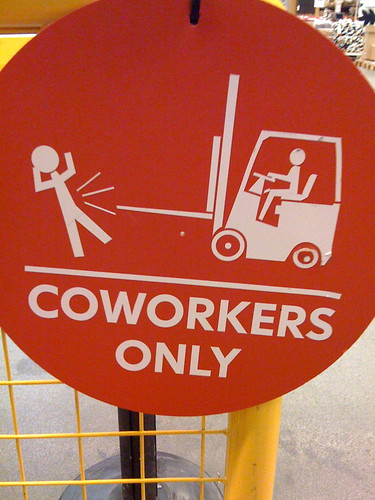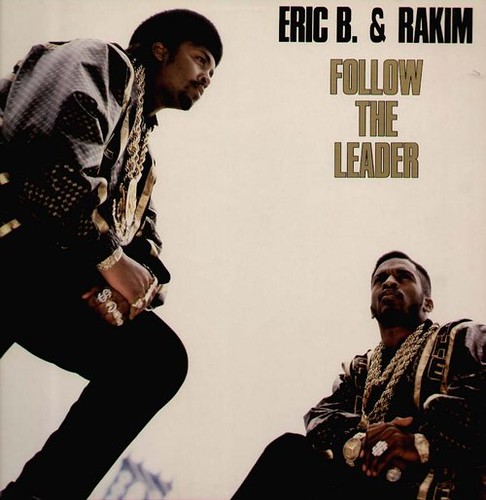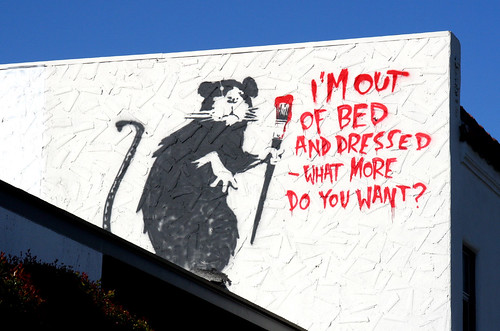Is compassion the key to creativity?
you tend to be hard on yourself, being less critical can make you more creative: Self-compassion is a multifaceted state of potential utility in alleviating the self-critical tendencies that may undermine creative expressions among certain individuals. To investigate this idea, 86 undergraduates were randomly assigned to control or self-compassion conditions, following which creative originality was assessed by a version of the Torrance Test of Creative Thinking (TTCT). The manipulation was hypothesized to facilitate creative originality particularly among individuals who…
1 min read
Can being antisocial be an advantage?
r programmers and tennis players, yes: Attachment-related avoidance and anxiety have repeatedly been associated with poorer adjustment in various social, emotional, and behavioral domains. We examined two domains in which avoidant individuals might be better equipped than their less avoidant peers to succeed and be satisfied – professional singles tennis and computer science. These fields may reward self-reliance, independence, and the ability to work without proximal social support from loved ones. In Study 1, we followed 58 professional singles tennis…
1 min read
What’s Dan Ariely’s trick for beating procrastination?
n Ariely, author of the excellent Predictably Irrational, The Hidden Forces That Shape Our Decisions gives us this tip: Join over 140,000 readers. Get a free weekly update via email here. Related posts: How to beat procrastination quickly Is there a way to reduce procrastination in the workplace? Could forgiveness be the cure to procrastination?
1 min read
Is it better to settle?
maximizer is someone who researches, comparison shops and works hard to make sure they get the absolute very best. A satisficer is someone who is happy with good enough. Many of us are maximizers about some things and satisficers about others. Which is the better strategy? Maximizing may give better objective results -- but makes us unhappier in the end: Although extant research suggests maximizing is related to objectively positive outcomes (e.g., job offers), I propose maximizing may be…
2 minutes
Do you need to be friends with the people you work with?
you want to get promoted, yes: Employees who are the most unwilling to develop workplace friendships seem to be the least likely to be promoted, according to research by Shawn Achor, author of The Happiness Advantage. In a blog post on HBR.org, he says he divided employees into quartiles on the basis of their willingness to initiate work relationships, such as by inviting coworkers out for drinks. Just 5% of the bottom quartile were extremely engaged in their work, and just 7% had been…
2 minutes
Do narcissists or junkies make better leaders?
rcissists don't. From APA: Narcissists rise to the top. That’s because other people think their qualities—confidence, dominance, authority, and self-esteem—make them good leaders. Is that true? “Our research shows that the opposite seems to be true,” says Barbora Nevicka, a PhD candidate in organizational psychology, describing a new study she undertook with University of Amsterdam colleagues Femke Ten Velden, Annebel De Hoogh, and Annelies Van Vianen. The study found that the narcissists’ preoccupation with their own brilliance inhibits a crucial…
2 minutes
Can someone wishing you luck really improve your performance?
ctivating a positive superstitious belief can boost people's confidence, which in turn improves performance..." Via HBR Daily Stat citing APA: Activating a positive superstitious belief can boost people's confidence, which in turn improves performance: In an experiment, a dexterity task that normally took more than 5 minutes was accomplished in just 191.5 seconds, on average, if participants were wished good luck before they started it, according to research led by Lysann Damisch of the University of Cologne in Germany. Before trying to roll…
1 min read
Does creativity require freedom or constraints?
t of both: This dissertation is about how constraint - restrictions to freedom that limit and direct search - influences creativity. Freedom is often associated with creativity, yet recent work in the decision making literature suggests that too much freedom can be paralyzing when it provides too many choices. This dissertation examines how the extent of constraint imposed on a task, when conceptualized as a continuum, affects creative processes and outcomes. It employs a multi-method, multi-level approach through three studies.…
2 minutes







